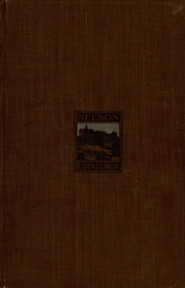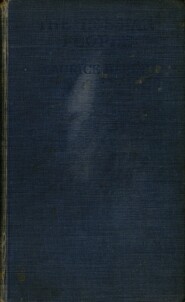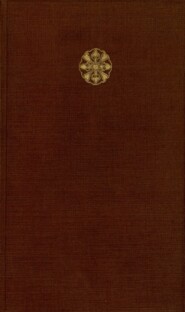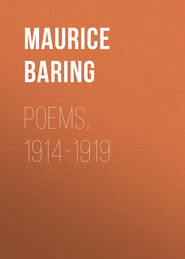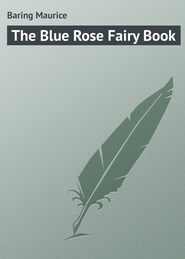По всем вопросам обращайтесь на: info@litportal.ru
(©) 2003-2024.
✖
Passing By
Настройки чтения
Размер шрифта
Высота строк
Поля
DEAREST ELSIE,
I am having a quiet Sunday in London. George is staying with the Prime Minister. I dined last night with the Housmans. Mrs Park was there, Randall and Miss Housman. Mrs Park is incredible: a magnificent figure, hair dyed a rich bronze with flaming high lights, dressed in a flowing robe of peach-coloured satin with a necklace of fire-opals and a large diamond lyre on her shoulder; the semi-royal manner of an ex-Prima Donna, at the same time making it quite clear that she no longer mixed with the artistic world – she had soared to the top of it and out of it. She said: "Years ago when I was at Balmoral the dear Queen told me she reminded me of Grisi." I said: "I suppose you mean you reminded her of Grisi," and she drew herself up stiffly and said she meant what she said. She told me that Madame Cosima had implored her to sing at Bayreuth but of course she couldn't think of doing such a thing. Poor Theodore (her late husband) hated Wagner. After dinner she sang, Miss Housman accompanied her, a song out of Cavalleria. They had a fierce argument about the time. Mrs Park said she was playing too fast, which she was, although I don't believe Mrs Park knew this. Miss Sarah stuck to her guns and played, if anything, faster. Mrs Park then refused to sing. Housman asked his wife to accompany her, which Mrs Housman most good-naturedly said she would be delighted to do. This was more than Miss Housman could bear – she said Mrs Housman was playing too slow and Mrs Park agreed. Miss Housman tore Mrs Housman from the piano and sat there herself, and the song was sung to the end. All seemed to be peaceable but Miss Housman unfortunately couldn't refrain from saying that Mascagni's music was rubbish, upon which Mrs Park burst into a furious passion. Who was Miss Housman to judge? she screamed. Miss Housman said she had studied music for five years under the best musicians in the world at Leipzig. Mrs Park said she had sung to Patti, who had said she was the only English artist worthy of the name of "artist." Miss Housman, in a sardonic voice, said that Patti was so kind. Mrs Park said that the arrogance of amateurs knew no bounds. She had sung before the most critical public in two continents. Miss Housman said she did not consider the Americans a critical public. Mrs Park then said she would never sing again in the Housmans' house as long as she lived, not if everyone went down on their knees to her. Housman became greatly agitated and fussed about the room, saying: "Never mind, never mind; we are all very tired to-night, it's the east wind." Mrs Park said she always sang her best in an east wind. I caught Mrs Housman's eye and we were seized with a fit of uncontrollable laughter. We laughed till we shook. Randall caught it too. This made things much worse. Mrs Park said she was being insulted and swept out of the room, Housman running after her. He came back alone gibbering with agitation, and Miss Housman then attacked him and said of course if Albert (rolling the "r" with a rapid guttural) would invite such awful people, what could one expect? Then "Bert" got really angry and we all sat in dead silence while he and Miss Sarah abused each other like pickpockets. Then the door opened and Mrs Park came back saying she had left her fan behind. She took no notice of us but disappeared with Housman into the Oriental lounge, and there we heard spirited skirmishes of talk going on in an undertone. Miss Housman sat down defiantly at the piano and played, or rather banged, the Rapsodie Hongroise. When this was over they both came back and Housman suggested, with a nervous chuckle, that we should all have some lemonade. We jumped at the idea and the evening ended peaceably enough, but Mrs Park ignored Miss Housman, was icy towards Mrs Housman, and made all her remarks to me and Randall. I then left the house. Housman followed me nervously to the door and said that Mrs Park had the artistic temperament and that I mustn't mind, and that it was too bad of Sarah to provoke her.
Yrs.
G.
P.S. – I suppose you read about the Carrington-Smith case in the newspapers. Mrs Housman and I laughed a good deal about it when "Bert" wasn't listening, but I am very sorry for Eileen. Aren't you?
From the Diary of Godfrey Mellor
Monday, October 18th.
A. has been staying with the Prime Minister. He does not appear to have enjoyed himself very much. He asked me if I had seen the Housmans lately.
Tuesday, October 19th.
A. and I dined with Cunninghame. Miss Wray was there, Mrs Howard and Lady Jarvis. A. said afterwards that Miss Wray was a charming girl – it was a pity that she did not marry.
Wednesday, October 20th.
I called on Mrs Housman late, but she was not at home. Housman came out of the house as I was standing at the door. He asked me to dinner on Sunday. I accepted.
Thursday, October 21st.
Dined at the Club.
Friday, October 22nd.
Dined with Mrs Howard. A. was there, Cunninghame, Miss Wray, Miss Macdonald, and others. Mr Howard is half-Irish and very boisterous. I sat next to Miss Wray; she said Mrs Campion was the nicest woman she knew. Uncle Arthur and Aunt Ruth have come back to London and are starting their Thursday evenings. They have asked A. and myself to dinner on Thursday week.
Saturday, October 23rd.
A. has gone to the country to stay with a General; a military party.
Sunday, October 24th.
I had luncheon with Lady Jarvis. She told me she did not think Mrs Housman would stay long in London, as the London winter was bad for her; she said she thought she would most likely go to Florence.
I dined with the Housmans. A strange party. Mrs Park was the only person there I had met before. There was a South African magnate and his wife, a retired Indian official, and a Mr Perry, an Australian, and his wife, who were apparently intimate friends of Mrs Park's, at least she called him Tom. I sat next to Mrs Perry, who told me that Paris had been a disappointment to her. She told me, also, that the women in England were, according to Australian standards, dowdy. On the other side of me was Lady Bowles, the wife of the Indian official. She told me she was Mrs Park's greatest friend; she said she lived at Cannes and only spent a few weeks in London every year; they were staying at the Hyde Park Hotel. She found London dreadfully slow: she was accustomed, she said, always to smoke between the courses at dinner, and not to do so was a great deprivation. She also said she was a great gambler and was used to gambling all night. "Of course I find this exhausting," she said; "and I always tell Harold I shall take to cocaine some day." Housman seemed rather embarrassed. Miss Housman was not there. After dinner Lady Bowles suggested a game of Poker. They all played except Mrs Housman and they were still playing when I left.
Monday, October 25th.
I had luncheon with Cunninghame at his Club. He said A. had come back from the country in a very bad temper and had said that nothing would induce him to pay a visit anywhere again.
Tuesday, October 26th.
Went to a concert at the Queen's Hall. Saw the Housmans in the distance, and to my astonishment I met A. in the interval. He said he had been dragged there by his sister. I met them again as we were going out. A. asked me to dinner on Friday.
Wednesday, October 27th.
Had luncheon with A. He seems in high spirits. He told me that his sister had come up from London for the winter – she had taken a house in Pont Street. He said the Housmans and Cunninghame were dining on Friday and it would be a Cornwall party.
Thursday, October 28th.
Dined with Aunt Ruth – a large political dinner; the F.O. largely represented, as usual. A. was there and sat next to the wife of the French military attache, and on the other side of Aunt Ruth. I am afraid he found the dinner tedious, but after dinner he talked to Miss Wray: I sat next to her at dinner. She asked me if I had known A. long. She said he was so like his sister. Uncle Arthur has not yet grasped I am working in a public office. He asked me how I was getting on in the city.
Friday, October 29th.
Dined with A. at his flat. Mr and Mrs Housman, Lady Jarvis, Miss Wray, Cunninghame and Miss Macdonald, Mrs Campion was coming but had been obliged to go down to the country. Mrs Housman said she was very likely going abroad for the winter.
Saturday, October 30th.
A. was engaged to go somewhere in the country but he has put off going. He left a telegram at the office to his hostess but forgot to fill in the address. Tuke brought it to me. It was to Mrs Legget, Miss Wray's aunt. She is not in Who's Who, but I rang up Lady Jarvis on the telephone and she knew.
Sunday, October 31st.
I went to call on Mrs Housman but she was not at home.
Letter from Guy Cunninghame to Mrs Caryl
LONDON,
Monday, November 1st.
DEAREST ELSIE,
I spent Sunday in London and had luncheon with Lady Jarvis. She told me the Housman ménage was all upside down owing to Mrs Park, who refused to let Housman see any of his old friends, insulted them all, and quarrelled every day with Miss Housman, and insisted on her friends being asked nightly to dinner – and what friends! Fast colonials, Lady Jarvis says, and the dregs of the Riviera! Poor Mrs Housman is utterly worn out. Mrs Park behaves exactly as if it were her house, orders the servants about, complains of the food, and is always there! The result is Mrs Housman has gone to Florence; she was to leave this morning and she is going to stay there the whole winter. I did not know how George would take this bit of news, but he knew already and seems, oddly enough, in good spirits! Edith thinks he is fond of Lavinia Wray and that he will end by marrying her, but Lady Jarvis does not agree, although she said that his sister thinks the same thing. They can't understand his being in such spirits otherwise. Last Friday we all had dinner at George's flat. After dinner, so Lady Jarvis told me, before we came out of the dining-room they were playing the game of saying who you could marry and who you couldn't, and after mentioning a lot of people, Godfrey Mellor among others, Freda Macdonald said: "George." Lady Jarvis and Freda said: "Oh yes; we could marry him." Mrs Housman and Lavinia Wray said: "No – quite impossible."
Except Lady Jarvis, they are all extraordinarily optimistic about George and think that there is nothing in the Housman thing and that it will pass off and he will marry Lavinia. I am sure they are wrong, and I am more depressed about it than words can say. Lavinia is fond of him, too, and that is all that has been gained. There are now three miserable people, instead of two! No letter from you this week, but I hope to get one to-morrow.
Yrs.
G.
From the Diary of Godfrey Mellor
Monday, November 1st. Gray's Inn.
Received a letter from Mrs Housman saying that she was leaving for Florence this morning, She was sorry not to have seen me yesterday. She is going to stay in Florence until the end of May.
Tuesday, November 2nd.
Had dinner with A. alone at his flat. He was in low spirits and said that he hates official life.
Tuesday, December 21st.
My Christmas holidays begin to-morrow. I am going to Aunt Ruth's. Cunninghame is staying with Lady Jarvis. A. said he would most probably spend Christmas with his sister, but he was not sure.
Thursday, December 23rd.
Received a telegram from Aunt Ruth saying the party was put off as Uncle Arthur has got bronchitis. A telegram arrived for A. at the office this morning. I telephoned to Tuke at his flat to know where to forward it. Tuke said A.'s address for the next week would be Hotel Grande Bretagne, Florence.
I am having a quiet Sunday in London. George is staying with the Prime Minister. I dined last night with the Housmans. Mrs Park was there, Randall and Miss Housman. Mrs Park is incredible: a magnificent figure, hair dyed a rich bronze with flaming high lights, dressed in a flowing robe of peach-coloured satin with a necklace of fire-opals and a large diamond lyre on her shoulder; the semi-royal manner of an ex-Prima Donna, at the same time making it quite clear that she no longer mixed with the artistic world – she had soared to the top of it and out of it. She said: "Years ago when I was at Balmoral the dear Queen told me she reminded me of Grisi." I said: "I suppose you mean you reminded her of Grisi," and she drew herself up stiffly and said she meant what she said. She told me that Madame Cosima had implored her to sing at Bayreuth but of course she couldn't think of doing such a thing. Poor Theodore (her late husband) hated Wagner. After dinner she sang, Miss Housman accompanied her, a song out of Cavalleria. They had a fierce argument about the time. Mrs Park said she was playing too fast, which she was, although I don't believe Mrs Park knew this. Miss Sarah stuck to her guns and played, if anything, faster. Mrs Park then refused to sing. Housman asked his wife to accompany her, which Mrs Housman most good-naturedly said she would be delighted to do. This was more than Miss Housman could bear – she said Mrs Housman was playing too slow and Mrs Park agreed. Miss Housman tore Mrs Housman from the piano and sat there herself, and the song was sung to the end. All seemed to be peaceable but Miss Housman unfortunately couldn't refrain from saying that Mascagni's music was rubbish, upon which Mrs Park burst into a furious passion. Who was Miss Housman to judge? she screamed. Miss Housman said she had studied music for five years under the best musicians in the world at Leipzig. Mrs Park said she had sung to Patti, who had said she was the only English artist worthy of the name of "artist." Miss Housman, in a sardonic voice, said that Patti was so kind. Mrs Park said that the arrogance of amateurs knew no bounds. She had sung before the most critical public in two continents. Miss Housman said she did not consider the Americans a critical public. Mrs Park then said she would never sing again in the Housmans' house as long as she lived, not if everyone went down on their knees to her. Housman became greatly agitated and fussed about the room, saying: "Never mind, never mind; we are all very tired to-night, it's the east wind." Mrs Park said she always sang her best in an east wind. I caught Mrs Housman's eye and we were seized with a fit of uncontrollable laughter. We laughed till we shook. Randall caught it too. This made things much worse. Mrs Park said she was being insulted and swept out of the room, Housman running after her. He came back alone gibbering with agitation, and Miss Housman then attacked him and said of course if Albert (rolling the "r" with a rapid guttural) would invite such awful people, what could one expect? Then "Bert" got really angry and we all sat in dead silence while he and Miss Sarah abused each other like pickpockets. Then the door opened and Mrs Park came back saying she had left her fan behind. She took no notice of us but disappeared with Housman into the Oriental lounge, and there we heard spirited skirmishes of talk going on in an undertone. Miss Housman sat down defiantly at the piano and played, or rather banged, the Rapsodie Hongroise. When this was over they both came back and Housman suggested, with a nervous chuckle, that we should all have some lemonade. We jumped at the idea and the evening ended peaceably enough, but Mrs Park ignored Miss Housman, was icy towards Mrs Housman, and made all her remarks to me and Randall. I then left the house. Housman followed me nervously to the door and said that Mrs Park had the artistic temperament and that I mustn't mind, and that it was too bad of Sarah to provoke her.
Yrs.
G.
P.S. – I suppose you read about the Carrington-Smith case in the newspapers. Mrs Housman and I laughed a good deal about it when "Bert" wasn't listening, but I am very sorry for Eileen. Aren't you?
From the Diary of Godfrey Mellor
Monday, October 18th.
A. has been staying with the Prime Minister. He does not appear to have enjoyed himself very much. He asked me if I had seen the Housmans lately.
Tuesday, October 19th.
A. and I dined with Cunninghame. Miss Wray was there, Mrs Howard and Lady Jarvis. A. said afterwards that Miss Wray was a charming girl – it was a pity that she did not marry.
Wednesday, October 20th.
I called on Mrs Housman late, but she was not at home. Housman came out of the house as I was standing at the door. He asked me to dinner on Sunday. I accepted.
Thursday, October 21st.
Dined at the Club.
Friday, October 22nd.
Dined with Mrs Howard. A. was there, Cunninghame, Miss Wray, Miss Macdonald, and others. Mr Howard is half-Irish and very boisterous. I sat next to Miss Wray; she said Mrs Campion was the nicest woman she knew. Uncle Arthur and Aunt Ruth have come back to London and are starting their Thursday evenings. They have asked A. and myself to dinner on Thursday week.
Saturday, October 23rd.
A. has gone to the country to stay with a General; a military party.
Sunday, October 24th.
I had luncheon with Lady Jarvis. She told me she did not think Mrs Housman would stay long in London, as the London winter was bad for her; she said she thought she would most likely go to Florence.
I dined with the Housmans. A strange party. Mrs Park was the only person there I had met before. There was a South African magnate and his wife, a retired Indian official, and a Mr Perry, an Australian, and his wife, who were apparently intimate friends of Mrs Park's, at least she called him Tom. I sat next to Mrs Perry, who told me that Paris had been a disappointment to her. She told me, also, that the women in England were, according to Australian standards, dowdy. On the other side of me was Lady Bowles, the wife of the Indian official. She told me she was Mrs Park's greatest friend; she said she lived at Cannes and only spent a few weeks in London every year; they were staying at the Hyde Park Hotel. She found London dreadfully slow: she was accustomed, she said, always to smoke between the courses at dinner, and not to do so was a great deprivation. She also said she was a great gambler and was used to gambling all night. "Of course I find this exhausting," she said; "and I always tell Harold I shall take to cocaine some day." Housman seemed rather embarrassed. Miss Housman was not there. After dinner Lady Bowles suggested a game of Poker. They all played except Mrs Housman and they were still playing when I left.
Monday, October 25th.
I had luncheon with Cunninghame at his Club. He said A. had come back from the country in a very bad temper and had said that nothing would induce him to pay a visit anywhere again.
Tuesday, October 26th.
Went to a concert at the Queen's Hall. Saw the Housmans in the distance, and to my astonishment I met A. in the interval. He said he had been dragged there by his sister. I met them again as we were going out. A. asked me to dinner on Friday.
Wednesday, October 27th.
Had luncheon with A. He seems in high spirits. He told me that his sister had come up from London for the winter – she had taken a house in Pont Street. He said the Housmans and Cunninghame were dining on Friday and it would be a Cornwall party.
Thursday, October 28th.
Dined with Aunt Ruth – a large political dinner; the F.O. largely represented, as usual. A. was there and sat next to the wife of the French military attache, and on the other side of Aunt Ruth. I am afraid he found the dinner tedious, but after dinner he talked to Miss Wray: I sat next to her at dinner. She asked me if I had known A. long. She said he was so like his sister. Uncle Arthur has not yet grasped I am working in a public office. He asked me how I was getting on in the city.
Friday, October 29th.
Dined with A. at his flat. Mr and Mrs Housman, Lady Jarvis, Miss Wray, Cunninghame and Miss Macdonald, Mrs Campion was coming but had been obliged to go down to the country. Mrs Housman said she was very likely going abroad for the winter.
Saturday, October 30th.
A. was engaged to go somewhere in the country but he has put off going. He left a telegram at the office to his hostess but forgot to fill in the address. Tuke brought it to me. It was to Mrs Legget, Miss Wray's aunt. She is not in Who's Who, but I rang up Lady Jarvis on the telephone and she knew.
Sunday, October 31st.
I went to call on Mrs Housman but she was not at home.
Letter from Guy Cunninghame to Mrs Caryl
LONDON,
Monday, November 1st.
DEAREST ELSIE,
I spent Sunday in London and had luncheon with Lady Jarvis. She told me the Housman ménage was all upside down owing to Mrs Park, who refused to let Housman see any of his old friends, insulted them all, and quarrelled every day with Miss Housman, and insisted on her friends being asked nightly to dinner – and what friends! Fast colonials, Lady Jarvis says, and the dregs of the Riviera! Poor Mrs Housman is utterly worn out. Mrs Park behaves exactly as if it were her house, orders the servants about, complains of the food, and is always there! The result is Mrs Housman has gone to Florence; she was to leave this morning and she is going to stay there the whole winter. I did not know how George would take this bit of news, but he knew already and seems, oddly enough, in good spirits! Edith thinks he is fond of Lavinia Wray and that he will end by marrying her, but Lady Jarvis does not agree, although she said that his sister thinks the same thing. They can't understand his being in such spirits otherwise. Last Friday we all had dinner at George's flat. After dinner, so Lady Jarvis told me, before we came out of the dining-room they were playing the game of saying who you could marry and who you couldn't, and after mentioning a lot of people, Godfrey Mellor among others, Freda Macdonald said: "George." Lady Jarvis and Freda said: "Oh yes; we could marry him." Mrs Housman and Lavinia Wray said: "No – quite impossible."
Except Lady Jarvis, they are all extraordinarily optimistic about George and think that there is nothing in the Housman thing and that it will pass off and he will marry Lavinia. I am sure they are wrong, and I am more depressed about it than words can say. Lavinia is fond of him, too, and that is all that has been gained. There are now three miserable people, instead of two! No letter from you this week, but I hope to get one to-morrow.
Yrs.
G.
From the Diary of Godfrey Mellor
Monday, November 1st. Gray's Inn.
Received a letter from Mrs Housman saying that she was leaving for Florence this morning, She was sorry not to have seen me yesterday. She is going to stay in Florence until the end of May.
Tuesday, November 2nd.
Had dinner with A. alone at his flat. He was in low spirits and said that he hates official life.
Tuesday, December 21st.
My Christmas holidays begin to-morrow. I am going to Aunt Ruth's. Cunninghame is staying with Lady Jarvis. A. said he would most probably spend Christmas with his sister, but he was not sure.
Thursday, December 23rd.
Received a telegram from Aunt Ruth saying the party was put off as Uncle Arthur has got bronchitis. A telegram arrived for A. at the office this morning. I telephoned to Tuke at his flat to know where to forward it. Tuke said A.'s address for the next week would be Hotel Grande Bretagne, Florence.






